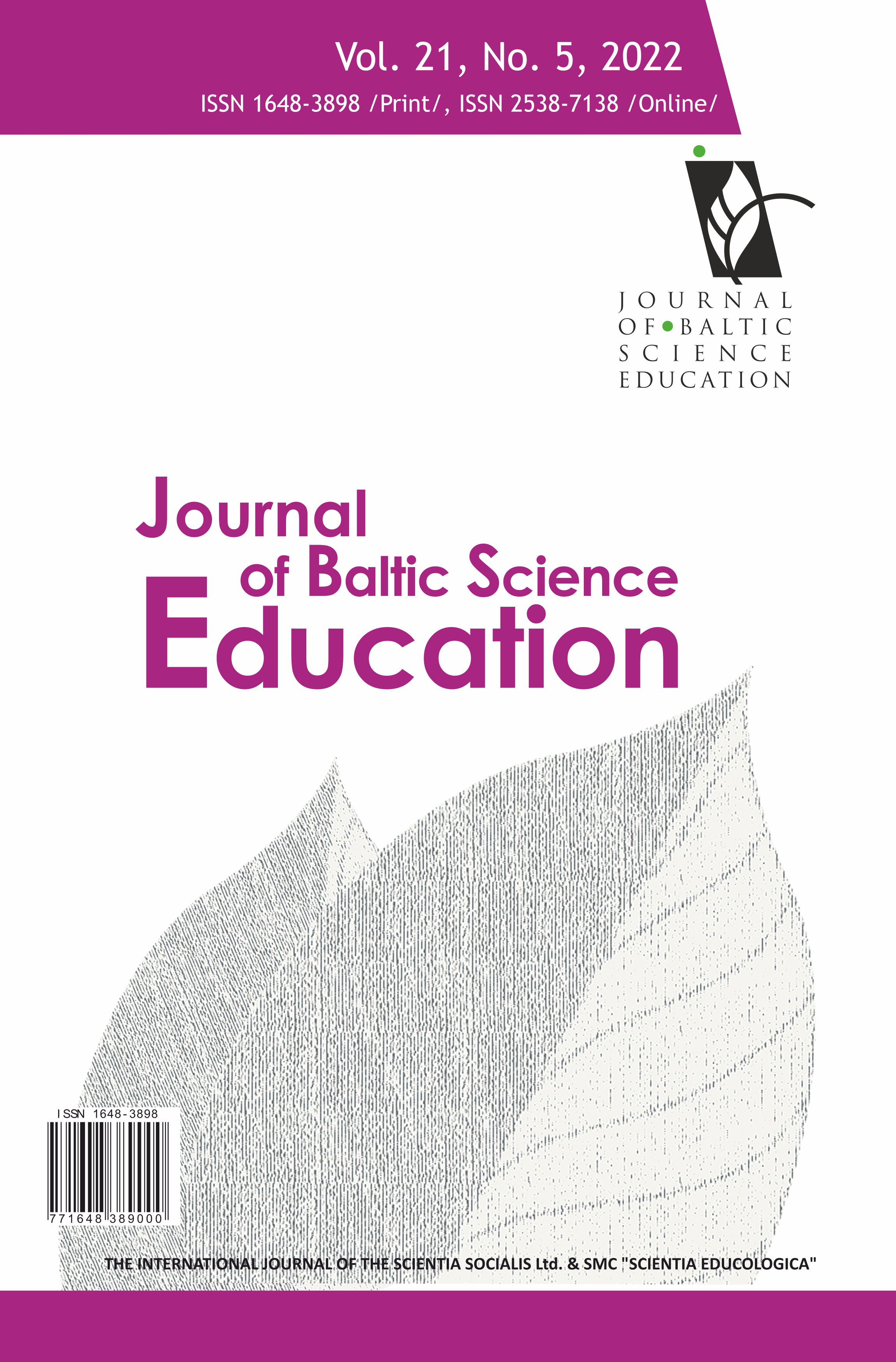RESEARCH TRENDS AND ISSUES INCLUDING COMPUTATIONAL THINKING IN SCIENCE EDUCATION AND MATHEMATICS EDUCATION IN THE REPUBLIC OF KOREA
RESEARCH TRENDS AND ISSUES INCLUDING COMPUTATIONAL THINKING IN SCIENCE EDUCATION AND MATHEMATICS EDUCATION IN THE REPUBLIC OF KOREA
Author(s): Woongbin Park, Hyuksoo KwonSubject(s): Social Sciences, Education, School education
Published by: Scientia Socialis, UAB
Keywords: computational thinking; mathematics education; research trend analysis; science education;
Summary/Abstract: Software (SW) is one of the key technologies in modern society, and its importance is receiving the attention of the educational community. In addition, Computational Thinking (CT) has been studied in fields of various education such as computer science, science, mathematics, and technology. The prominence of computer science education has increased in K-12 South Korean schools with the effect of the 2015 Revised National Curriculum and the National Plan for Activating Software Education. In addition, there are active efforts to include CT in science, technology, and mathematics classrooms. Therefore, this study aims to review prior studies on CT in science and mathematics education. The results of this study are as follows: 1) CT in science and mathematics education has a different conceptual approach than CT in computer education. Science education is mostly about problem-solving activities using computers, and mathematics education mostly utilizes the ‘abstraction’ related approach. 2) The key to improving CT in both subjects is to implement practical experience in science and mathematics education. Variables of interest in prior studies were scientific and mathematical problem-solving skills, the attitude of subjects, and creativity. 3) CT education in science and mathematics education has used a convergence education approach (STEAM education).
Journal: Journal of Baltic Science Education
- Issue Year: 21/2022
- Issue No: 5
- Page Range: 875-887
- Page Count: 13
- Language: English

